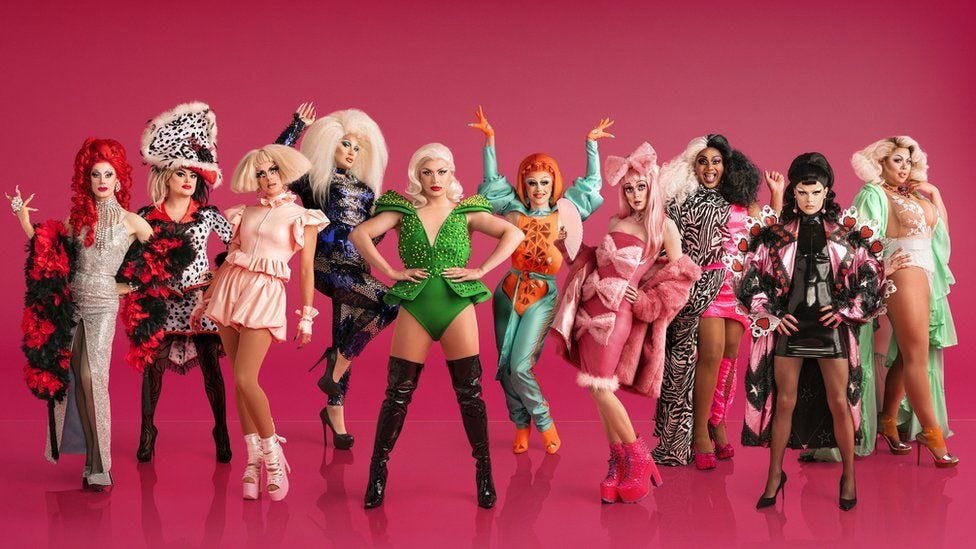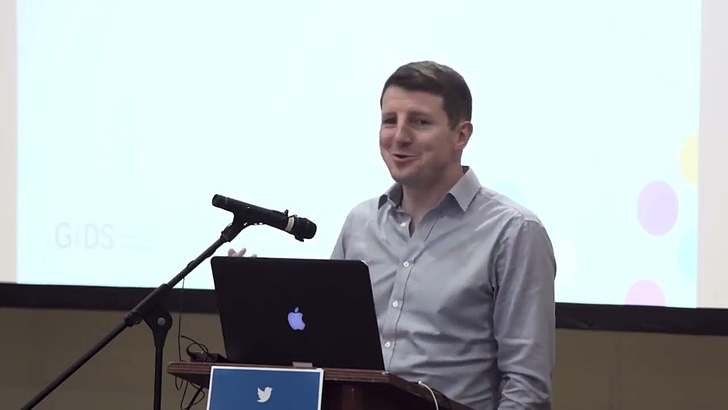The year has got off to a poor start for the BBC Identity Hub, led by Jon Buckley.
Despite their clear significance, it decided against including several stories in its coverage. This is a specialist team ostensibly covering issues around gender identity, remember. First, there was the Women’s Rights Network report on trans-identified male police officers’ rights to search women’s orifices, which was so solid it led to an apparent shift in policy.
This was a particularly big miss, because there was an exchange in parliament, providing a handy peg if they found the report itself too distasteful.
Then there was the Fair Play For Women report on the impact of males in female sport, and the Sex Matters investigation into women’s refuges and rape crisis centres.
If they’d held on to Hannah Barnes they could also have had her follow up report on the post-Tavistock turmoil.
The BBC team is supposed to focus on the ‘other side’ of the debate as much as the ‘LGBT/Identity’ side - that was the reason given to me on one occasion for not appointing a women’s correspondent. The team is supposed to offer a balance of insights and investigations.
It has not touched any of these meaty stories. Instead, it’s done a Drag Race special (I can’t bear to write about that) and reported on the CQC approval of a private hormone clinic run by clinicians from a service the CQC rated 'inadequate.'
‘This is the story that's woken up the BBC's gender team, with this rather breezy little report’ said Transgender Trend, and they’re right.
The article on Gender Plus, previously under investigation by the Care Quality Commission and made up of ex-Tavistock staff, was little more than a puff piece.
James Esses called the CQC decision a ‘safeguarding travesty’ but there’s no reflection of any such safeguarding concern at all in the BBC report, and no mention of the previous CQC ‘failure to register’ investigation.
I thought at the time that the team would have to be coming up in meetings with some reason to justify their continued existence, while all these stories were swirling and being ignored.
I tweeted that they’re probably working on stuff with gender activist contacts but I didn’t want to be right. Then the Gender Plus article appeared.
The article itself was wholly gender affirmative, with unquestioning use of ‘gender identity’ and ‘transgender young people’, even though the latest BBC internal guidance admits they’re contested concepts. It made the front page (why? ‘Private clinic approved’ is not front page material) and in a sure sign there were no fears transactivists would take offence, bylines were included.
In its favour, it included pretty high up that long-term hormone use could lead to side effects and permanent infertility, with relevant links. And it didn’t ignore the fact that there’s been controversy. But particular questions and concerns have been raised about Gender Plus, and the founder Dr (he’s a Dr by PhD) Aidan Kelly is quoted uncritically - under the sub-heading ‘Highest standard’ no less.
It’s not clear if there was a BBC interview in which he was challenged on safeguarding issues. If he was, it’s not reflected in the article. The whole piece was very mellow. There are plenty of people who’ve raised concerns who could have been asked, and who know how to do so within legal bounds, but there was none of that.
It’s so clear that a different kind of team or correspondent is needed specifically to cover the more complex side of this story, and to be given the backing of editors to do so, in a reality-based way, using reality-based language. Lauren Moss did the right thing, getting in the equivocations about medical transition, but it didn’t go far enough.
It’s not like that this story shouldn’t have been done: it’s that it was done in the context of the BBC’s Identity department ignoring absolutely everything else.
If you have a story about the effect of gender ideology on your workplace, send it to us at The Whistleblower thewhistleblowermailbox@gmail.com Anonymity guaranteed.






I hope my BBC pension won’t be cancelled for saying this (nothing would surprise me) but I too can no longer defend them. Like Jill (above) I believe the licence fee is being wasted on these chancers. Courageous journalism is needed now more than ever, and instead of employing more people in the mould of Hannah Barnes, they appear to have provided sinecures for ideologues. How many are in that department? How many are needed? I’m grateful to Graham for his courage in this fight, and to those who advised me to continue with my complaint about the BBC’s unquestioning use of the politically biased language of the gender cult.
I didn’t see it but my 80 something auntie watched the Emmys (or some pointless award ceremony) where Rue Paul won an award. While accepting it he was surrounded by about 20 grotesquely and hideously woman faced Drag Queens. My auntie wasn’t upset at that per se, (whatever -live and let live) it was Paul’s speech which went along the lines of - you should accept these lovely “ladies” for Drag Queen Story time in Libraries and Schools. We have really emboldened these fetishists, thanks BBC. My aunts question was this, and this is what concerned her. “why would a man, who enjoys dressing as a woman, prancing about like a caricature, in such an extreme parody, WANT to go into schools and read stories to young children?”
The 6m dollar question. Why indeed.